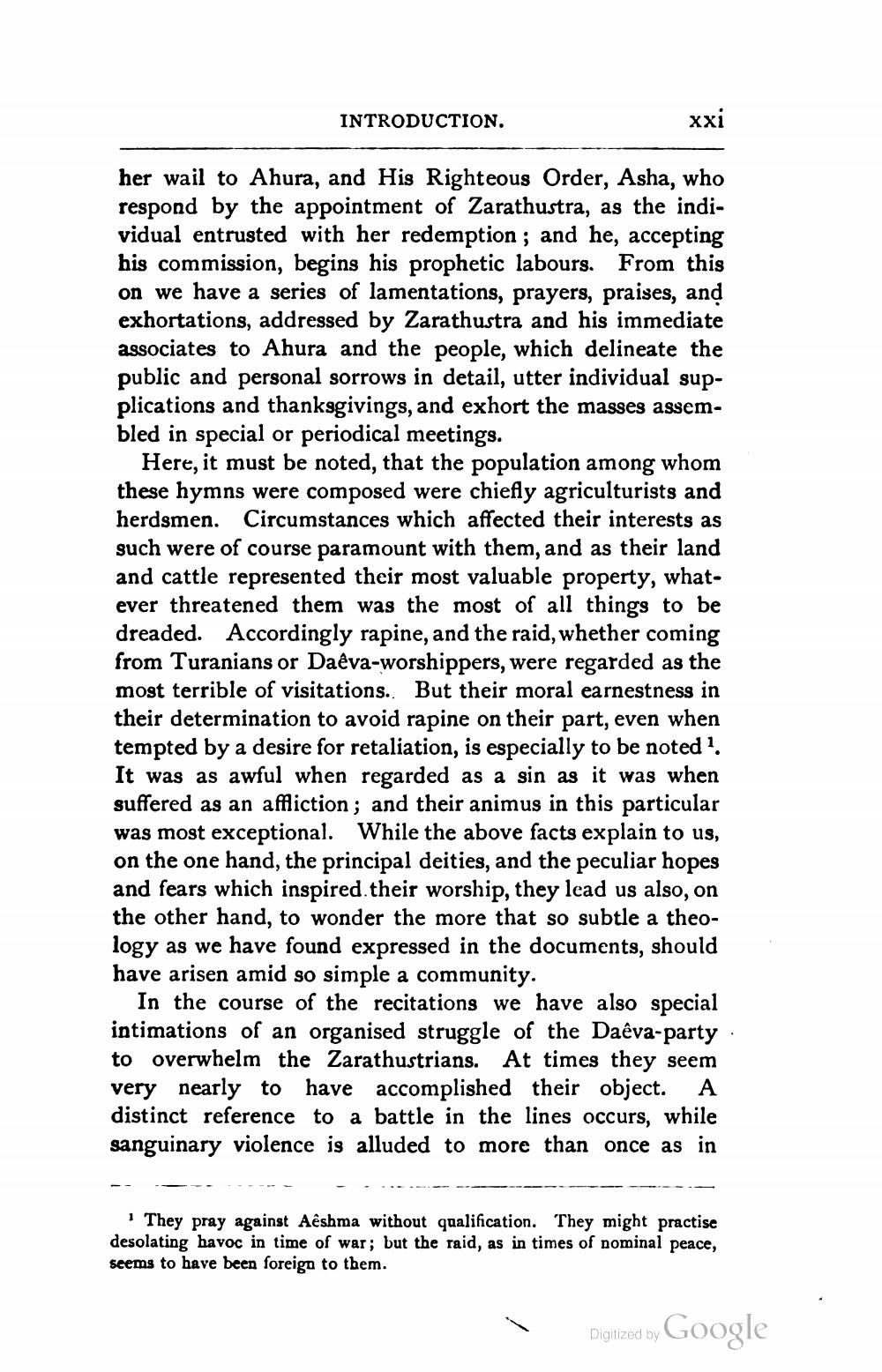________________
INTRODUCTION.
xxi
her wail to Ahura, and His Righteous Order, Asha, who respond by the appointment of Zarathustra, as the individual entrusted with her redemption; and he, accepting his commission, begins his prophetic labours. From this on we have a series of lamentations, prayers, praises, and exhortations, addressed by Zarathustra and his immediate associates to Ahura and the people, which delineate the public and personal sorrows in detail, utter individual supplications and thanksgivings, and exhort the masses assembled in special or periodical meetings.
Here, it must be noted, that the population among whom these hymns were composed were chiefly agriculturists and herdsmen. Circumstances which affected their interests as such were of course paramount with them, and as their land and cattle represented their most valuable property, whatever threatened them was the most of all things to be dreaded. Accordingly rapine, and the raid, whether coming from Turanians or Daêva-worshippers, were regarded as the most terrible of visitations. But their moral earnestness in their determination to avoid rapine on their part, even when tempted by a desire for retaliation, is especially to be noted 1. It was as awful when regarded as a sin as it was when suffered as an affliction; and their animus in this particular was most exceptional. While the above facts explain to us, on the one hand, the principal deities, and the peculiar hopes and fears which inspired their worship, they lead us also, on the other hand, to wonder the more that so subtle a theology as we have found expressed in the documents, should have arisen amid so simple a community
In the course of the recitations we have also special intimations of an organised struggle of the Daêva-party to overwhelm the Zarathustrians. At times they seem very nearly to have accomplished their object. A distinct reference to a battle in the lines occurs, while sanguinary violence is alluded to more than once as in
They pray against Aeshma without qualification. They might practise desolating havoc in time of war; but the raid, as in times of nominal peace, seems to have been foreign to them.
Digitized by
Digitized by Google




